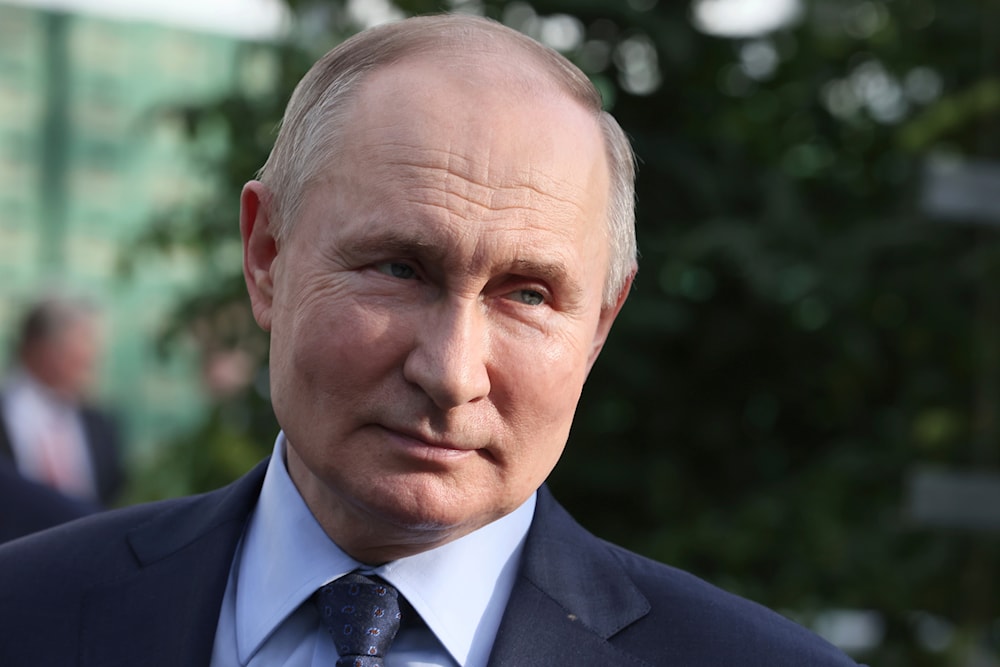Putin supports inter BRICS grain exchange to offset speculation
The Russian President has discussed future plans to create non-Western exchanges during a high-level grain and industrial meeting.
-

Russian President Vladimir Putin visits the Solnechny Dar greenhouse complex, part of the ECO-Culture agro-industrial holding outside Stavropol, Russia, March 5, 2024. (Sputnik)
Russia's President Vladimir Putin has supported an initiative to create a grain exchange within the BRICS bloc and said speculative trading affects prices and consumers.
"All these exchange indices are formed either in the United States or in Europe, in Paris. I do not know, how much grain do the French produce? I think less than we do. And traditionally, stock the exchange index is formed there. Of course, this is unfair, because from here it affects pricing. Your idea (the initiative in question) is very good," Putin said at a meeting with representatives of the agricultural-industrial sector on Tuesday.
Since there are countries in BRICS that produce and buy grain, they might be interested in creating such an exchange, the Russian President stated, as he highlighted the effects of speculative trading on grain prices.
"Especially since these things of a speculative nature, of course, affect consumers in the end. And this is a problem. And these are problems that all governments are trying to solve," Putin said.
"We will definitely work on [a BRICS grain exchange] with our partners," he revealed.
Read more: Polish FM worried about farmers using pro-Russian slogans in protests
Russia makes agricultural landmarks
Putin also underlined the vast space that Russia occupies in the grain market, stating that Russia exported at least $43.5 billion worth of agricultural-industrial products to foreign markets and supplied $41.6 billion in such products in 2022. In 2023-2024, up to 65 million tons of grain are planned to be delivered abroad, according to the President.
Russia's share in the world grain market is approaching 25%, as every fourth tonne of grain has become of Russian origin, Eduard Zernin, the head of the Russian Union of Grain Exporters, told those in attendance.
Zernin said the attempt to "cancel" Russian grain on the global market, since the Russian Special Operation in Ukraine was launched, has failed. The official said that exporters had built direct links with consumers and increased their export volumes as a countermeasure to sanctions.
On the other hand, Zernin pointed to the fact that fierce competition and issues stemming from financial transactions persist. He also pointed to a "game" of lowering the cost of grain in world exchanges, which has had its own negative effects on exporters.
Read more: Russia to deliver grain to several African countries for free: Putin

 3 Min Read
3 Min Read









